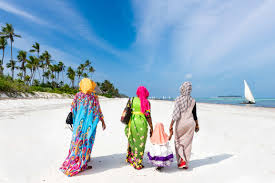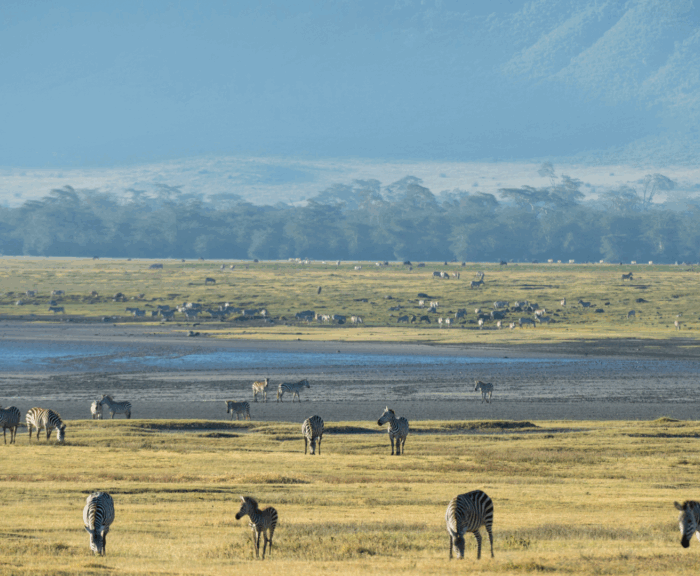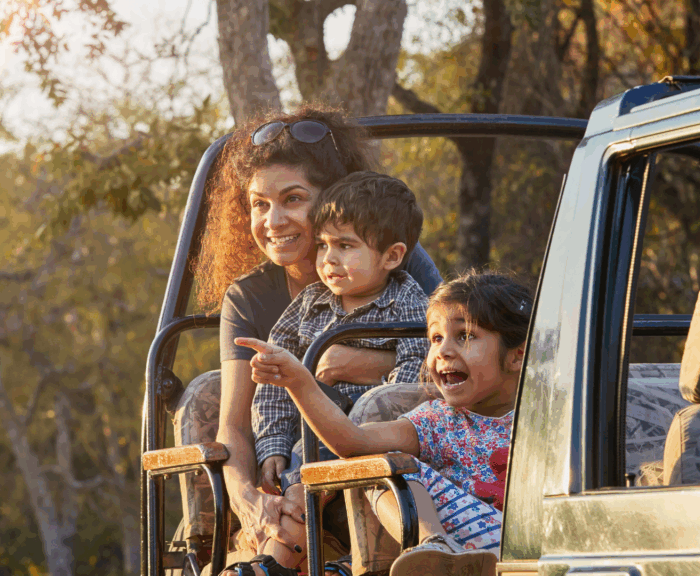Tanzania is a top destination known for its stunning landscapes, rich wildlife, and diverse cultures. While the sights and safaris are captivating, the true essence of Tanzania lies in its people and their languages.
Swahili, or Kiswahili, is the national language and is spoken by over 100 million people across East Africa. Though English is common in tourist areas, knowing a few Swahili phrases can enhance your experience, making interactions smoother and showing respect for the local culture.
This blog will equip you with the basics you need to connect more deeply with Tanzanians through their language.
The History Of Swahili Language in Tanzania
Swahili’s origins may stretch back thousands of years, but it evolved into the language we know today with the arrival of Arab and Persian traders on the East African coast between 500 and 1000 AD. The term “Swahili” was initially used by Arabs to refer to “the coast,” but over time, it became associated with the specific culture of East Africa’s coastal regions. In Swahili, the language is referred to as Kiswahili, and those who speak it as their mother tongue may identify themselves as Waswahili. While Arabic and indigenous African languages heavily influenced Swahili, it also incorporates words from English, German, and Portuguese.
In Tanzania, Swahili has grown from a coastal trading language into a national unifier. Following the country’s independence in 1961, Swahili was adopted as the national language to foster a sense of national unity among the country’s diverse ethnic groups. Today, it is the primary language of communication in most social, educational, and governmental settings. Tanzanians speak Swahili in their daily interactions, from markets and schools to media and government offices. It is also the medium of instruction in primary schools, further cementing its role as the foundation of Tanzanian society.
Swahili’s reach extends beyond the borders of Tanzania; it is spoken in several other East African countries, making it an invaluable language for anyone traveling within the region. Whether in urban centers like Dar es Salaam or rural villages, knowing Swahili opens doors to deeper connections and a richer understanding of the local culture.
Other Languages in Tanzania
While Swahili serves as the national language, Tanzania is home to an impressive linguistic diversity, with over 120 different tribal languages spoken across the country. These languages belong to various language families, including Bantu, Nilotic, and Cushitic. Each ethnic group in Tanzania has its own language, such as Chaga, Sukuma, and Maasai, which are often used within communities for everyday communication, cultural practices, and rituals.
English, on the other hand, occupies a different space within the linguistic landscape of Tanzania. Introduced during the colonial era, English is widely used in secondary and higher education, as well as in business, legal, and governmental sectors. It acts as a bridge in international communication. It is particularly prevalent in the tourism industry, where it serves as the primary language for guiding tours, conducting business transactions, and communicating with foreign visitors.
While English will help you navigate many tourist activities, learning Swahili and acknowledging the presence of tribal languages will deepen your appreciation of Tanzania’s rich cultural mosaic and make your interactions with locals more meaningful.
Learning some common words in Swahili is important. Here are some common words you should know before your next trip to Tanzania, especially if you wish to connect with the people during your stay.
- Jambo or Hujambo?: Hello
- Habari? / Mambo? / Vipi?: How are you?
- Nzuri / Safi / Poa: I am fine
- Asante: Thank you
- Asante Sana: Thank you very much
- Tafadhali: Please
- Karibu: Welcome
- Pole: Sorry
- Samahani: Excuse me
- Kwaheri: Goodbye
- Asanteni: Thank you (to more than one person)
- Kwa heri (One Person) & kwa herini (more than one person): Goodbye
- Tutaonana: See you later
- Nafurahi kuonana: Nice to meet you
- Habari za asubuhi: Hello/Good Morning (Very Formal, used when speaking to older adults or officials)
- Lala salama: Goodnight
Directions
When exploring a new place, it’s important to know how to ask for directions or understand when someone is giving them. Here are some key phrases to help you get around.
- Kushoto: Left
- Kulia: Right
- Mbele: Straight ahead
- Karibu: Near
- Mbali: Far
Questions
Asking questions is a vital part of communication, especially when you’re in an unfamiliar place. These common questions will help you seek information and make your way through various situations.
- Pesa Ngapi or Bei gani? – How much?
- Unazungumza Kiingereza?: Do you speak English?:
- Jina lako nani?: What is your name?
- Jina langu ni [Your Name]: My name is [Your Name]
- …ni wapi…?: Where is…?
- Kwa Nini? – Why?
- Nani? – Who?
- Lini? – When?
- Nini? – What
- Gani? – Which?
Days
Knowing how to refer to different days and times is useful, whether you’re planning activities, scheduling appointments, or simply trying to keep track of your time. Here are the Swahili terms for days and other time-related words
- Leo: Today
- Kesho: Tomorrow
- Jana: Yesterday
- Sasa: Now
- Baadaye: Later
- Kila siku: Every day
- Jumatatu: Monday
- Jumanne: Tuesday
- Jumatano: Wednesday
- Alhamisi: Thursday
- Ijumaa: Friday
- Jumamosi: Saturday
- Jumapili: Sunday
Numbers
Numbers are essential for various situations, whether you’re buying something, asking for directions, or just understanding time and dates. Here are the basic numbers in Swahili.
- Moja: One
- Mbili: Two
- Tatu: Three
- Nne: Four
- Tano: Five
- Sita: Six
- Saba: Seven
- Nane: Eight
- Tisa: Nine
- Kumi: Ten
Dining and Ordering Food
Food is a central part of any culture, and being able to order and enjoy local dishes is a must. Here are some phrases that will help you when dining out in Tanzania.
- Chakula: This is the general term for food.
- Una chakula gani?: What food do you have?
- Maji: To ask for water, simply say, “Naomba maji, tafadhali” (Please, may I have some water?).
- Ningependa kuagiza: I would like to order.
- Samahani, naweza kupata menyu?: Excuse me, can I get the menu?
- Bila pili: Without chili.
- Tafadhali nipe bili: Please give me the bill.
Emergencies and Health
In case of an emergency or if you need medical assistance, knowing how to express your needs in Swahili can be crucial. These phrases will help you communicate in such situations.
- Nisaidie: Help me.
- Ninahisi mgonjwa: I feel sick.
- Nimepotea: I am lost.
- Nahitaji daktari: I need a doctor.
- Nina maumivu hapa: I have pain here.
Practical Tips for Learning Language in Tanzania
Learning a new language, especially one as widely spoken and culturally rich as Swahili, can greatly enhance your travel experience in Tanzania. Here are some practical tips to help you get started:
1. Start with the Basics
Begin by learning essential greetings, polite expressions, and basic questions. Phrases like “Habari” (Hello), “Asante” (Thank you), and “Tafadhali” (Please) are great starting points.
Swahili pronunciation is relatively straightforward, with each letter generally representing a single sound. Spend time practicing to ensure you are understood correctly.
2. Use Language Learning Apps and Resource
Apps like Duolingo, Memrise, and Babbel offer engaging and user-friendly Swahili courses. They can be convenient ways to practice on the go. You can also invest in a good Swahili phrasebook or language guide to have handy when traveling.
3. Practice with Locals
One of the best ways to learn is by practicing with native speakers. Don’t be afraid to use your Swahili, even if you make mistakes—locals will appreciate the effort. Look for language exchange groups online or in person. In these groups, you can practice Swahili with native speakers in exchange for helping them with English.
Also, attend local events, markets, or community gatherings where you can immerse yourself in the language and culture.
4. Don’t Be Afraid to Ask Questions
If you don’t understand something, ask for an explanation. Tanzanians are generally very welcoming and patient with those trying to learn their language.
While practicing Swahili is encouraged, don’t hesitate to switch to English if you’re struggling. Many Tanzanians speak English, especially in urban areas and tourist spots, so you’ll still be able to communicate effectively.
5. Practice Consistently
Set aside a few minutes each day to practice Swahili, whether it’s through an app, speaking with a local, or listening to a song. Consistency is key to language retention.
Try to incorporate new words and phrases into your conversations as soon as you learn them. This will help solidify your understanding and make them easier to recall later.
Tanzania Is Waiting for You!
By familiarizing yourself with common Swahili phrases and cultural nuances, you will show respect for Tanzanian traditions and enrich your journey through this beautiful country. Remember, language is not just a tool for communication; it’s a gateway to understanding the heart of a culture. So, embrace the opportunity to learn, practice, and immerse yourself in Tanzania’s vibrant linguistic tapestry.
Karibu Tanzania! (Welcome to Tanzania!)
Related Reads
-
Package
Package – ATA Safaris – Travel & Tour Agency in Arusha Tanzania
-
Destination
Destination – ATA Safaris – Travel & Tour Agency in Arusha Tanzania
-
Blog
Get exclusive travel deals on flights |Tanzania Safaris | hotels & vacation packages | book in confidence with ATA. … Travel & Tour Agency in Arusha| Go explore Africa| Compare 100 sites | find cheap flights & Hotels worldwide Our Partners. Trusted by the world’s best.
-
About Us
Strengths: At ATA Safaris, we pride ourselves on our array of strengths that set us apart in the travel industry:. Global Networking Expertise: With extensive experience collaborating with global networking travel management companies, we bring a wealth of connections and resources to ensure seamless travel experiences for our clients worldwide.
-
Contact Us
At ATA Travel and Safaris, we offer a wide range of safari experiences
FAQs on Language in Tanzania
Do I need to learn Swahili to travel to Tanzania?
While it’s not necessary to be fluent in Swahili, learning basic phrases can greatly enhance your travel experience. English is widely spoken in tourist areas, but knowing some Swahili will help you connect more deeply with locals and navigate everyday situations with ease.
What should I do if I am invited to someone’s home?
Bringing a small gift, such as fruit or sweets, is appreciated. It’s also polite to accept at least a small portion of food if offered.
Can I use English in rural areas of Tanzania?
English is less commonly spoken in rural areas, so learning some basic Swahili phrases will be very helpful. In these regions, people might speak only Swahili or their tribal language.
Are there different dialects of Swahili spoken in Tanzania?
Swahili is generally consistent across Tanzania, but you may encounter slight variations in pronunciation or vocabulary depending on the region. However, these differences are usually minor and won’t impact basic communication.
Where can I learn Swahili before my trip?
You can learn Swahili through language apps, online courses, or language books. Practicing with a native speaker or taking a short language class in Tanzania can also be beneficial.
Can I hire a translator or guide to help with language barriers?
Yes, many tour operators offer guides who are fluent in multiple languages, including Swahili and English. This can be helpful for a richer cultural experience.






